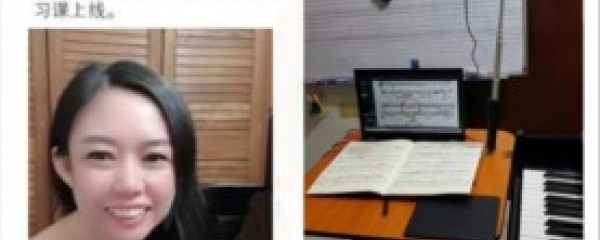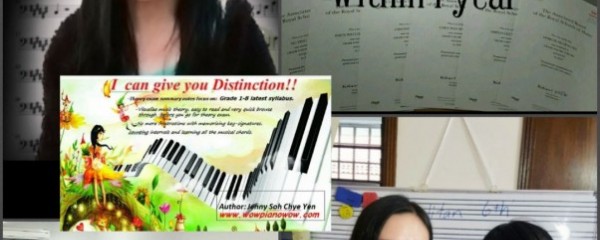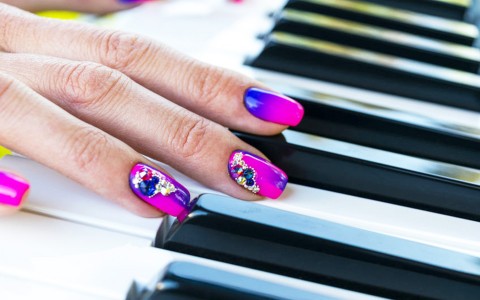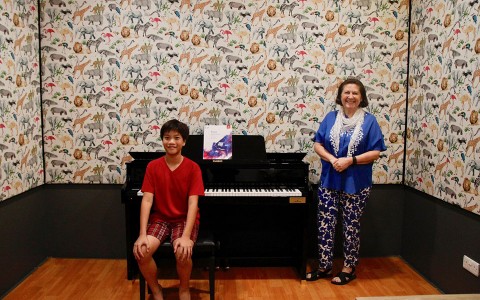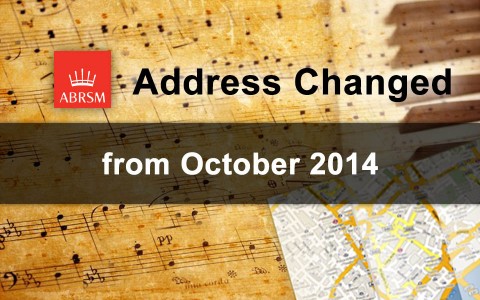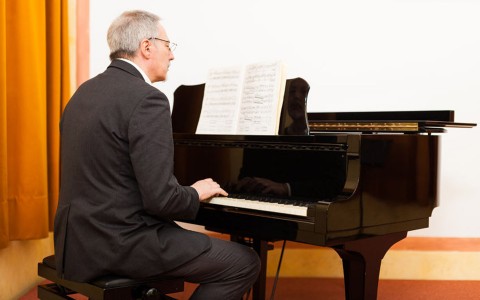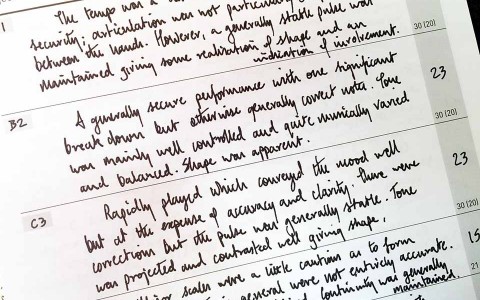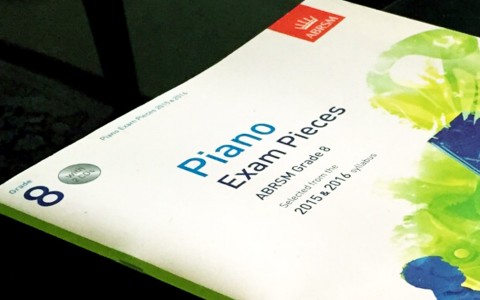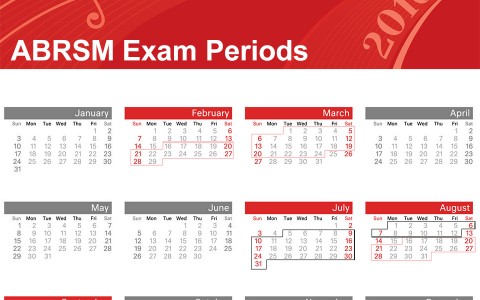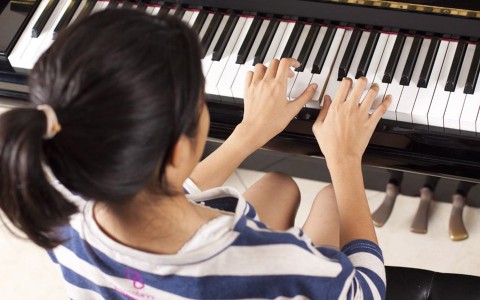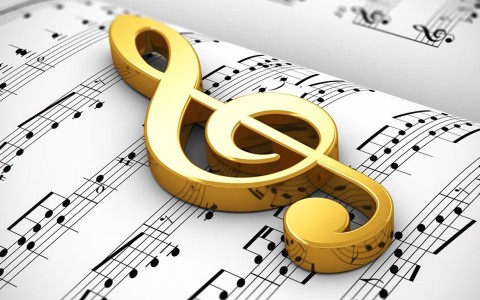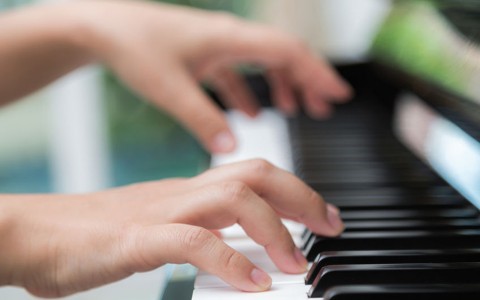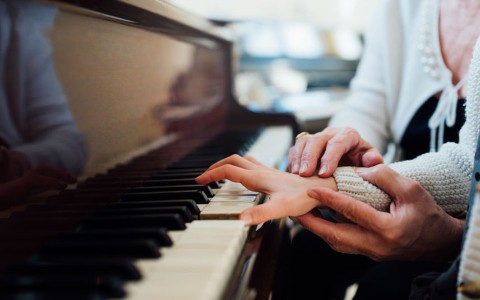Taking a piano exam (practical) is a big thing for every candidate. After all, you have taken time and effort to prepare yourself for this actual day. Here are some tips on what you can do to ride through the exam day.
Before you leave your house
- Have a good sleep, so that you wake up on this important day feeling fresh and ready. Watching movies through the wee hours, staying out late partying, and playing games past your sleeping hour; are huge no-nos.
- Have a healthy breakfast. If you have butterflies in your stomach due to anxiety, don't force yourself to finish the food. They might end up in a wrong place.
- Avoid doing any serious work, whether piano related or not, so that your brain is not taxed. Do something relaxing and fun.
- Avoid especially thinking about your scales, arpeggios, fingering, what you have and haven't done for your exam. This will only upset you, and disturb your inner calm.
- Dress yourself in a smart casual attire to show respect for both the performance and your examiner. Don't wear slippers, flip-flops, and home-wear clothes.
- Print a copy of the Examination Appointment Letter which lists down the venue information and the candidate details. This letter is emailed to the Applicant weeks before the actual day. In the past, it was mailed to the Applicant's address.
Leaving your house
- Bring the printed Examination Appointment Letter
- Bring a Photo ID to prove you're the candidate. If you do not have any Photo ID (passport or Ez-Link card), bring your Birth Certificate. This is usually the case for a very young candidate.
- Bring along all original music scores required for your piano exam pieces. Do not bring photocopies.
- Bring along a hand warmer.
- Bring a jacket or sweater.
- Aim to arrive at least 15 minutes before the start of your examination time. Plan your journey to the examination venue well in advance and allow plenty of time to allow for traffic delays. If possible, make a trip down before the actual exam. This can help you to familiarise the route from your place to the venue, as well as the possibly tricky bends and turns when you are at the venue itself.
Arriving at the Examination room
- Report to the Steward and greet him when you arrive at the examination room.
- Present the printed Examination Appointment Letter and your Photo ID to the Steward.
- If the Steward asks you the running order of your tests, you can choose to play the scales and arpeggios before the pieces, to loosen your fingers up.
Waiting outside the Examination room
- The Steward will tell you where to wait. If you need to visit the restroom while waiting, let the Steward know and go ahead. Make sure you feel comfortable before you go into the exam room.
- Loosen and exercise your fingers.
- Wear your jacket or sweater if you are feeling cold.
- If your fingers are feeling cold, use your hand warmer. Otherwise, keep your hands inside your jacket or sweater.
- Do not talk to other people about the exam, your pieces, and the examiners. This only adds anxiety and promotes nervousness. Instead, take a few deep breaths, relax and focus on your exam.
- Look through your scores and visualise yourself playing them. Imagine the applause when you finish playing. Fill yourself with positive thoughts.
- Think to yourself that this is just like any other piano practice session. It does not matter now whether you have prepared for the exam, focusing on the upcoming exam soon is all you can do now.
Inside the Examination room
- Stay calm and poised. Relax and enjoy the examination experience.
- Adjust the piano stool height if you need to. Before you start, make sure you feel comfortable. and take a deep breath if you are feeling nervous.
- If anything is unclear, don’t be afraid of asking the examiner to repeat an instruction or question.
- For scales and arpeggios, take a moment to think about the starting position. Don’t rush.
- For sight-reading exercise, do not try to fix your mistakes; continue and finish the whole exercise in your best effort.
- Do not feel upset if your examiner asks you to cut a piece short. It is not necessarily due to a poor performance on your part. It is more likely that he has a time constraint or he has already heard enough to form an examination assessment.
- If you think you are doing well, ride on this wave of euphoria until the end of the exam. Concentrate until the end of the exam. A lot can happen between now and then.
- If you think you are performing badly, focus on what's coming next instead. What has happened has happened. There is still the rest of the exam to impress the examiner. A lot can change between now and the end of the exam.
After the exam
- Don't take a 'bad' result personally. Examiners can only assess your performance and fulfilment of the syllabus requirements on a particular day, not on your general standard as a musician or your musical potential. Just as a picture doesn't always capture you at your best angle, your performance on the actual exam day may not also accurately reflect your overall musical ability. So avoid placing too much importance on a single exam result.
- If you feel your performance was not up to your expectations, work with your teacher to be better prepared for your next exam or learn to manage your anxiety during exams more effectively in your next endeavour. Many talented performers, and even teachers and examiners; have stumbled in exams or performances during their learning journey. However, if you have a positive attitude, dedication, discipline, strength of character and a love for piano; you will take the necessary actions to address your weaknesses and ensure future success.
- Don't be too confident with your exam. You might be disappointed when you see your results. On the other hand, don't be too negative with your exam and think that you have done badly. You might get a pleasant surprise!
For parents
- Do not impose your own anxiety about examination on your child.
- Give support, care and concern before the exam.
- Do encourage your child in a positive way regardless of the outcome.
All the best for your exam!


